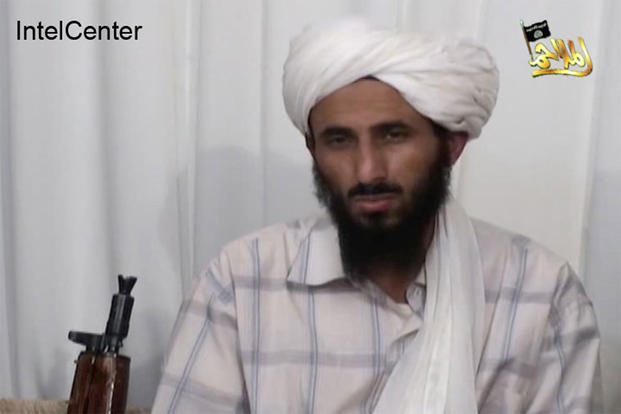The Pentagon and the White House Tuesday cited two airstrikes this week against terror leaders and a major Kurdish victory in Syria as evidence of a turnabout in the long-term campaign against ISIS and Al Qaeda.
Army Col. Steve Warren, a Pentagon spokesman, acknowledged recent setbacks, including the fall of Ramadi to ISIS last month, but said "Patience is the key. This week we have seen success across a broad spectrum" in the Mideast."
At the White House, National Security Council spokesman Ned Price confirmed that a U.S. airstrike in Yemen on Monday killed Nasir al-Wahishi, the leader of the Al Qaeda in the Arabian Peninsula (AQAP) group that has plotted against the U.S. homeland.
Al-Wahishi, once the personal secretary to Osama Bin Laden, was considered the No. 2 in Al Qaeda as the deputy to leader Ayman al-Zawahiri. In statements and a video, AQAP said al-Wahishi had been killed in a U.S., drone strike.
"Wahishi’s death removes from the battlefield an experienced terrorist leader and brings us closer to degrading and ultimately defeating these groups," Price said.
On Sunday, two F-15 Strike Eagles – each dropping two, 500-pound smart bombs – hit a building in eastern Libya in an attack that was believed to have killed Mokhtar Belmokhtar, the Pentagon said Monday.
Known as "Mr. Marlboro" for his sideline as a cigarette smuggler, Belmokhtar had been charged in a federal court in New York with the 2013 attack on an Algerian oil refinery in which 37 hostages, including three Americans, were killed.
Also on Monday, the Islamic State of Iraq and Syria (ISIS) suffered what was called its biggest loss yet in Syria when its fighters reportedly fled attacking Kurdish forces who took the important town of Tal Abyad on the Turkish border, cutting a major supply route to the terror group.
Troops from the Kurdish People's Protection Units (YPG) militias were seen tearing down the black flags of ISIS to unfurl their own yellow banners.
The capture of Tal Abyad with the backing of U.S. airstrikes was "the biggest setback to ISIS since it announced its caliphate one year ago," said Rami Abdel Rahman, the head of the Syrian Observatory for Human Rights monitoring group, Agence France Presse reported.
At the Pentagon, Col. Warren said the taking of Tal Abyad was the result of a long push westward for the Kurdish fighters that began in March.
Coupled with the Kurds’ successful defense of the Syrian town of Kobani to the west earlier this year, the fall of Tal Abyad would significantly cut off ISIS smuggling routes through Turkey and also impede the flow of foreign fighters to replenish ISIS’ ranks, Warren said.
Despite the success, both State Department and Pentagon officials said they were concerned over reports that Kurds had been mistreating Arab residents of Tal Abyad.
"We would find that unacceptable if true," Warren said.
The strikes against the terror leaders and the capture of Tal Abyad followed on weeks of ISIS gains in Iraq, concerns over the Baghdad government’s ability to reconcile with the Sunni population, and complaints that the U.S. training program for Iraqi troops was faltering because of a lack of recruits.
Critics of the Obama administration in the House and Senate were joined this week by former Defense Secretary Robert Gates, who charged that the U.S. lacked a strategy for defeating ISIS and was resorting to piecemeal responses to daily events.
In an interview with Yahoo News, Gates singled out the announcement last week by the Pentagon that an additional 450 troops would be going to Iraq to advise and assist the Iraqis.
"Just adding another few hundred troops doing much of the same is not likely to make much of a difference," Gates said.
Warren said that the successes this week showed the worth of the overall plan and also cited recent gains by the Iraqi Security Forces in and around the Iraqi oil refinery city of Baiji as signs of progress.
-- Richard Sisk can be reached at richard.sisk@military.com





























